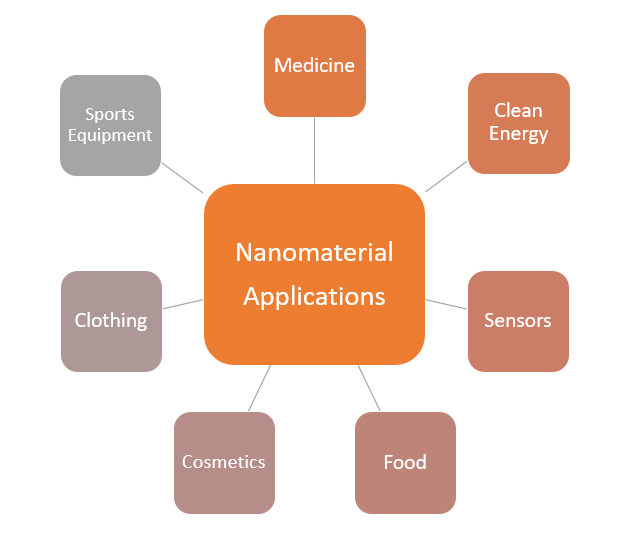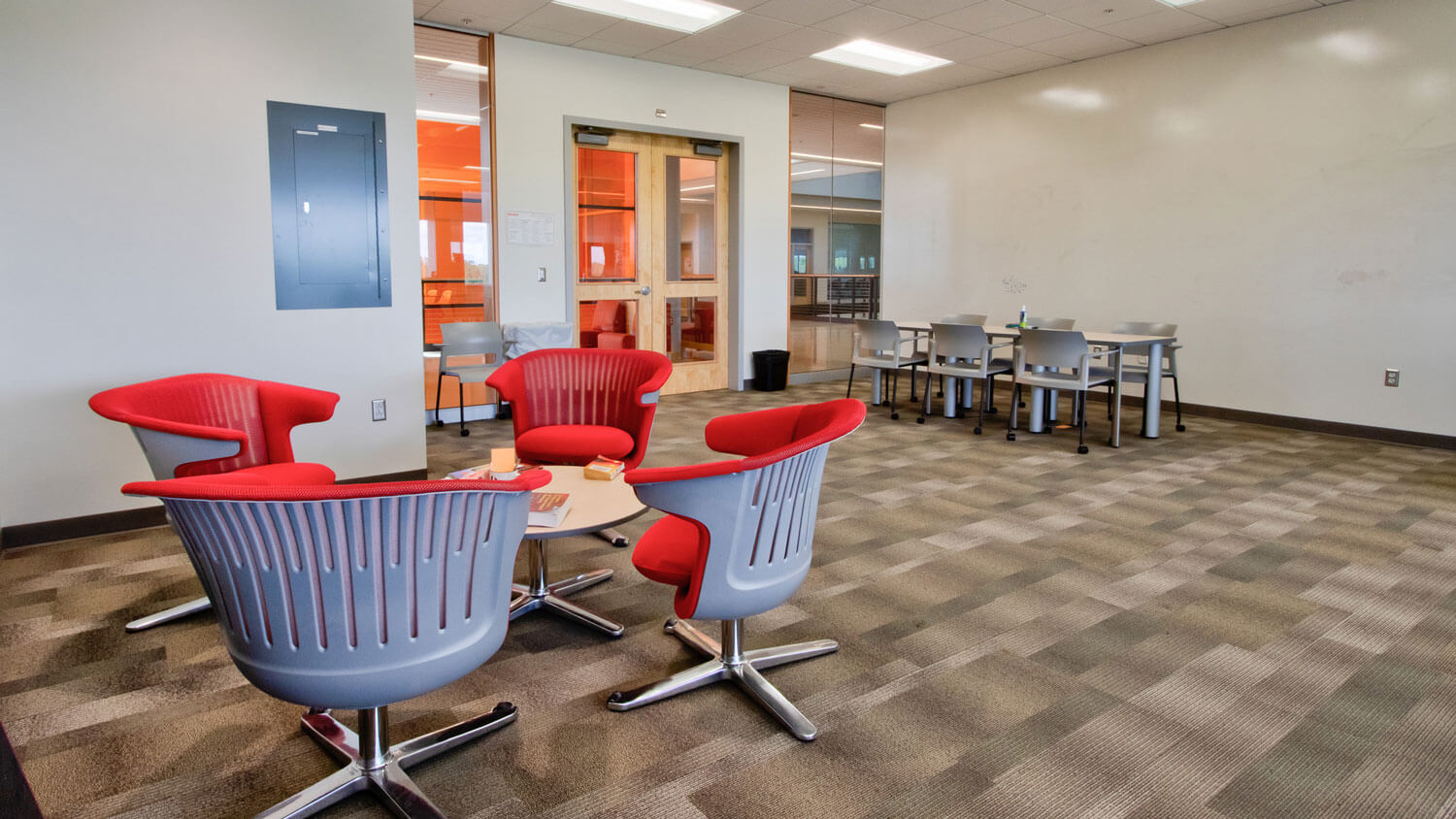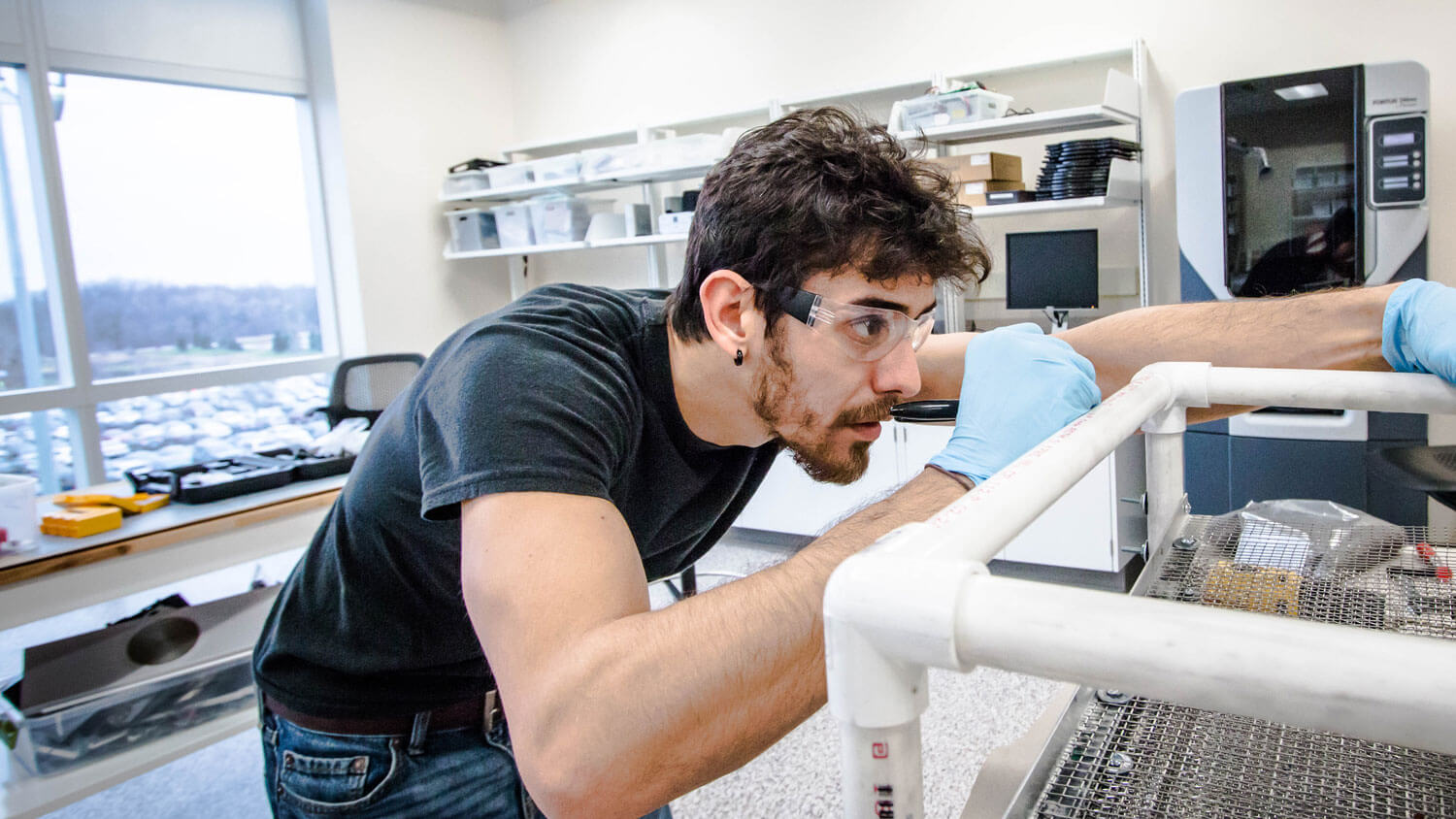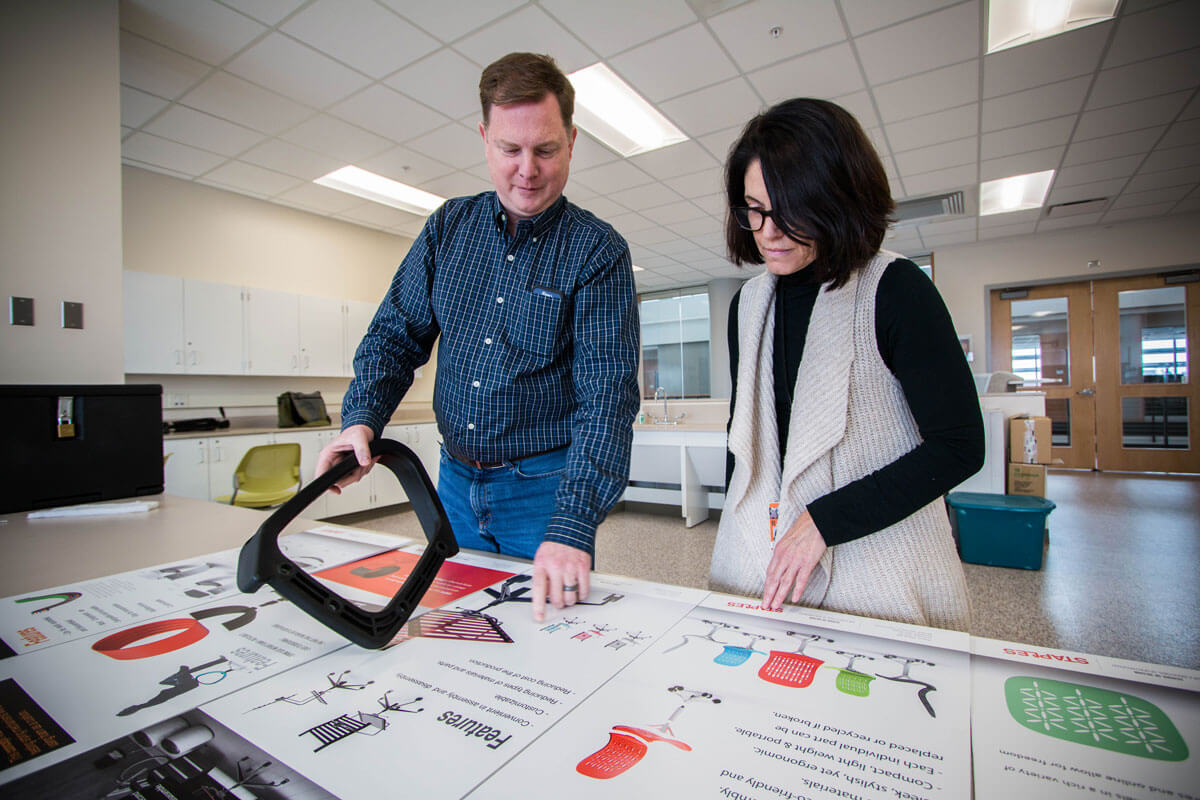Sustainable Systems Master of Science Degree


Sustainable Systems
Master of Science Degree
- RIT /
- Golisano Institute for Sustainability /
- Academics /
- Sustainable Systems MS
Request Info about graduate study
Visit
Apply
sustdept@rit.edu
A sustainability degree that teaches you to apply sustainability science principles to any field to help solve the world’s grand challenges—including pollution, food scarcity, public health crises, and more.
Overview for Sustainable Systems MS
The sustainable systems MS degree accepts students from any academic background and encompasses a wide range of interdisciplinary studies in sustainability science. Here, you won’t be restricted to one sustainability topic or methodology. You will comprehensively learn and experience the methods that lead to environmental, social, technological, and business success, working one-on-one with a faculty advisor to tailor the degree to your sustainability interests.
RIT's Sustainable Degree
In our sustainable master's program, you will start with a broad foundation of knowledge in environmental life cycle assessment, sustainable decision making, economic and policy strategies, and more. Then, you will have the opportunity to customize your degree in areas that suit your interests and career goals—such as renewable energy or mobility—as well as get the hands-on experience that employers are seeking. In as little as one year of study, you will be prepared to make sustainability decisions that you can apply to any career.
Not only will you be able to focus on an area that interests you, but you will be able to get hands-on in your projects with the use of one of our many labs or through design modeling tools. This degree allows you the flexibility to adapt your career over time and in response to the ever-changing developments in sustainability. The Golisano Institute for Sustainability is dedicated to groundbreaking sustainability research and its business applications. Our research facilities are second to none, and include a number of green buildings including Sustainability Institute Hall, a 75,000-square-foot, LEED Platinum-certified research building and multiple state-of-the-art research centers.
You don’t need a background in sustainability to apply to this program; just a desire to create positive change in the world. We accept applicants of all ages, from all backgrounds—from mechanical engineering to political science—and from all over the world. This ensures your learning experience comes from the classroom as well as from the perspectives of students with diverse experiences.
Sustainability Curriculum
Through a flexible and interdisciplinary curriculum, you’ll begin your degree in sustainable systems with core courses in industrial ecology, risk assessment, the economics of sustainability, and more. Several electives from across the university–in areas as diverse as from sustainable craft brewing and distilling to corporate social responsibility–allow you to tailor your degree around your talents and career goals.
Your degree culminates with a research thesis or a capstone project. Recent thesis examples include:
- Techno-Environmental Analysis of Generating Animal Feed from Wasted Food Products
- Fabrication and life cycle assessment of organic photovoltaics
- Characterizing adaptive capacity to climate change in developing countries: a case study on Peru
Sustainability Topics / Tracks
Sustainable Energy
- Sustainable Energy Systems
- Food-Energy-Water Nexus
- Energy Policy
Example research project: Inspection of wind turbine blades with unmanned aerial vehicles (UAVs)
Circular Economy
- Introduction to Geographic Information Systems (GIS)
- Data Analysis for Sustainability
- Innovation Policy
- Corporate Social Responsibility (CSR)
Example research project: Assessing a baseline case for reaching carbon neutrality in Monroe County by 2027
Sustainable Urban Systems
- Sustainable Mobility Systems
- Graduate Sustainable Communities
- Sustainable Building Metrics
Example research project: Evaluating strategies for sustainable renovation of RIT campus buildings
Careers in Sustainability
Graduates of the sustainable systems MS have a 100 percent placement rate, in part because of RIT’s dedication to career counseling and ongoing relationships with employers. This means that all of our graduates gain employment or choose to further their education shortly after graduating. And If you’re interested in pursuing a career more focused on academia or research, the master’s degree is also an excellent stepping stone to a doctoral program, such as RIT’s Ph.D. in sustainability, if you take the route of completing a thesis while here.
Sustainability Resources: RIT Advances Global Sustainability
Partnering locally and internationally with the communities in which we are engaged, RIT is continuing to advance sustainability efforts and build resiliency at home and around the world. Rochester, NY, is a hub for sustainability professionals and home to rich natural resources, such as fertile farmland and the nearby Finger Lakes. Many of our students share their passion for sustainability with the local community by volunteering on projects connected to K-12 education, community gardens, farmer’s markets, and more. In addition, you will connect with the global sustainability community by attending and presenting at professional conferences all over the world.
Featured Work
Does energy storage make the U.S. electric grid cleaner?
Dr. Eric Williams
In brief: Project: “How much wind and solar are needed to realize emissions benefits from storage?”
Can paper waste be used to make black ink?
Dr. Thomas A. Trabold
In brief: Project: “Waste Paper Derived Biochar for Sustainable Printing Products”
Nanomaterials: To use or not to use
Dr. Elizabeth Moore ’19
The following learning module was created by Dr. Elizabeth Moore '19 as a student for public teaching use.
Featured Profiles
Erin Semple '14
"Everything about GIS made earning my MS in Sustainable Systems a positive experience: the challenging-but-rewarding approach to learning, the student-centered environment, and the connection my...
JT Coneybeer '15
"I use the efficiency assessment skills I learned at GIS everyday as an energy engineer to evaluate energy-consuming systems. Thanks to plenty of hands-on projects and inspiring classroom...
Ricardo Dias '15
"GIS really expanded the ways in which I am empowered to positively impact the world. The things I learned and experienced in the MS program led me to successfully start my own energy management...
Curriculum for 2023-2024 for Sustainable Systems MS
Current Students: See Curriculum Requirements
Sustainable Systems (capstone option), MS degree, typical course sequence (semesters)
| Course | Sem. Cr. Hrs. | |
|---|---|---|
| First Year | ||
| ISUS-702 | Fundamentals of Sustainability Science This course prepares students to conduct original research related to sustainable production and consumption systems and apply the scientific method in an integrative, team-based approach to graduate research. This course introduces the fundamental concepts of industrial ecology, ecological economics, ecosystem health and social ecology that are essential to understanding the interaction of industrial and ecological systems. Successful students will understand multiple perspectives on sustainability such as strong and weak formulations, the importance of sustainability as an ethical concept and a life-cycle approach to organizing research related to sustainability. It is a core course within the Sustainability Ph.D. program. Lecture 3 (Fall). |
3 |
| ISUS-704 | Industrial Ecology Industrial ecology is the study of the interaction between industrial and ecological systems. Students in this course learn to assess the impact and interrelations of production systems on the natural environment by mastering fundamental concepts of ecology as a metaphor for industrial systems and the resultant tools from industrial ecology, including life cycle assessment, material flow analysis, and energy and greenhouse gas accounting. This is a core course within the Sustainability Ph.D. program. Lecture 3 (Fall). |
3 |
| ISUS-706 | Economics of Sustainable Systems The goal of this course is to introduce students to economic concepts and analysis pertaining to sustainable systems. This course offers a nontechnical introduction, but based on rigorous economic reasoning. Additionally, a thorough treatment of models relevant to each topic is provided. The over-arching goal is for students to gain an appreciation for the logic of economic reasoning while teaching economics as it pertains to sustainable systems. Lecture 3 (Fall). |
3 |
| ISUS-780 | Capstone An independent project in sustainability serving as a capstone experience for students completing the non-thesis option. This course requires a formal proposal and a faculty sponsor. Lecture (Fall, Spring, Summer). |
6 |
| ISUS-806 | Risk Analysis This course examines risk identification, quantification, and management from the standpoint of the three key components of sustainability science (economics, environment, and society). Economic subjects include cost-benefit analysis, value of information, time value of money, basic decision analysis, value functions, monetizing challenges for ecosystem services, and sustainability risk management. Environmental subjects include toxicological perspectives such as fate and transport and dose-response relationships including an overview of EPA's current practice. Policy and societal subjects include utility theory and lotteries, risk perception, ethical issues in risk quantification, and impact statements. Lecture 3 (Fall). |
3 |
| ISUS-808 | Multicriteria Sustainable Systems This class will explore how decisions are made when confronted with multiple, often conflicting, criteria or constraints. The focus will be on the following analytical methods: linear and stochastic programming, optimization, and Monte Carlo simulation. Case studies will focus on sustainability multi-criteria problems such as energy planning, sustainable development, resource management, and recycling. Students will apply methods learned to a project involving their dissertation research. Lecture 3 (Spring). |
3 |
| PUBL-810 | Technology, Policy and Sustainability (or approved substitute) This course introduces students to public policy and its role in building a sustainable society. The course places particular emphasis on the policy process; the relationship among technology, policy, and the environment; and policy mechanisms for addressing market and government failures that threaten sustainability. Lecture 3 (Fall, Spring). |
3 |
Electives |
6 | |
| Total Semester Credit Hours | 30 |
|
Sustainable Systems (thesis option), MS degree, typical course sequence (semesters)
| Course | Sem. Cr. Hrs. | |
|---|---|---|
| First Year | ||
| ISUS-702 | Fundamentals of Sustainability Science This course prepares students to conduct original research related to sustainable production and consumption systems and apply the scientific method in an integrative, team-based approach to graduate research. This course introduces the fundamental concepts of industrial ecology, ecological economics, ecosystem health and social ecology that are essential to understanding the interaction of industrial and ecological systems. Successful students will understand multiple perspectives on sustainability such as strong and weak formulations, the importance of sustainability as an ethical concept and a life-cycle approach to organizing research related to sustainability. It is a core course within the Sustainability Ph.D. program. Lecture 3 (Fall). |
3 |
| ISUS-704 | Industrial Ecology Industrial ecology is the study of the interaction between industrial and ecological systems. Students in this course learn to assess the impact and interrelations of production systems on the natural environment by mastering fundamental concepts of ecology as a metaphor for industrial systems and the resultant tools from industrial ecology, including life cycle assessment, material flow analysis, and energy and greenhouse gas accounting. This is a core course within the Sustainability Ph.D. program. Lecture 3 (Fall). |
3 |
| ISUS-706 | Economics of Sustainable Systems The goal of this course is to introduce students to economic concepts and analysis pertaining to sustainable systems. This course offers a nontechnical introduction, but based on rigorous economic reasoning. Additionally, a thorough treatment of models relevant to each topic is provided. The over-arching goal is for students to gain an appreciation for the logic of economic reasoning while teaching economics as it pertains to sustainable systems. Lecture 3 (Fall). |
3 |
| ISUS-806 | Risk Analysis This course examines risk identification, quantification, and management from the standpoint of the three key components of sustainability science (economics, environment, and society). Economic subjects include cost-benefit analysis, value of information, time value of money, basic decision analysis, value functions, monetizing challenges for ecosystem services, and sustainability risk management. Environmental subjects include toxicological perspectives such as fate and transport and dose-response relationships including an overview of EPA's current practice. Policy and societal subjects include utility theory and lotteries, risk perception, ethical issues in risk quantification, and impact statements. Lecture 3 (Fall). |
3 |
| ISUS-808 | Multicriteria Sustainable Systems This class will explore how decisions are made when confronted with multiple, often conflicting, criteria or constraints. The focus will be on the following analytical methods: linear and stochastic programming, optimization, and Monte Carlo simulation. Case studies will focus on sustainability multi-criteria problems such as energy planning, sustainable development, resource management, and recycling. Students will apply methods learned to a project involving their dissertation research. Lecture 3 (Spring). |
3 |
Elective |
3 | |
| Second Year | ||
| ISUS-790 | Thesis Independent research in sustainability leading to the completion of the MS thesis. This course requires a formal proposal and a faculty sponsor. Thesis (Fall, Spring, Summer). |
6 |
| PUBL-810 | Technology, Policy and Sustainability (or approved substitute) This course introduces students to public policy and its role in building a sustainable society. The course places particular emphasis on the policy process; the relationship among technology, policy, and the environment; and policy mechanisms for addressing market and government failures that threaten sustainability. Lecture 3 (Fall, Spring). |
3 |
Elective |
3 | |
| Total Semester Credit Hours | 30 |
|
Admissions and Financial Aid
This program is available on-campus only.
| Offered | Admit Term(s) | Application Deadline | STEM Designated |
|---|---|---|---|
| Full‑time | Fall or Spring | Rolling | Yes |
| Part‑time | Fall or Spring | Rolling | No |
Full-time study is 9+ semester credit hours. Part-time study is 1‑8 semester credit hours. International students requiring a visa to study at the RIT Rochester campus must study full‑time.
Application Details
To be considered for admission to the Sustainable Systems MS program, candidates must fulfill the following requirements:
- Complete an online graduate application.
- Submit copies of official transcript(s) (in English) of all previously completed undergraduate and graduate course work, including any transfer credit earned.
- Hold a baccalaureate degree (or US equivalent) from an accredited university or college.
- A recommended minimum cumulative GPA of 3.0 (or equivalent).
- Submit a current resume or curriculum vitae.
- Submit a personal statement of educational objectives.
- Submit two letters of recommendation.
- Entrance exam requirements: None
- Submit one writing sample.
- Submit English language test scores (TOEFL, IELTS, PTE Academic), if required. Details are below.
English Language Test Scores
International applicants whose native language is not English must submit one of the following official English language test scores. Some international applicants may be considered for an English test requirement waiver.
| TOEFL | IELTS | PTE Academic |
|---|---|---|
| 88 | 6.5 | 60 |
International students below the minimum requirement may be considered for conditional admission. Each program requires balanced sub-scores when determining an applicant’s need for additional English language courses.
How to Apply Start or Manage Your Application
Cost and Financial Aid
An RIT graduate degree is an investment with lifelong returns. Graduate tuition varies by degree, the number of credits taken per semester, and delivery method. View the general cost of attendance or estimate the cost of your graduate degree.
A combination of sources can help fund your graduate degree. Learn how to fund your degree
Additional Information
Prerequisites
The Sustainable Systems MS program requires that students gain mastery of key sustainability concepts and methods, several of which are quantitative in nature. Due to this, we require incoming students to have taken university-level calculus, statistics, and two courses in physical sciences (such as chemistry or physics).
MS/MBA Option
Students are eligible to earn an MBA in just one year after completing the Sustainable Systems MS. This combination of graduate degrees allows students to learn business, policy, engineering, and science behind our world's systems to gain knowledge to solve any sustainability problem. Admission to the MBA is automatic upon successful completion of the MS, with scholarship guaranteed. Students admitted to the program graduate as dual-degree holders—with both a Master of Science and an MBA—in just two years. For more details on this accelerated pathway, visit: Sustainable Systems MS & MBA.
Latest News
-
May 6, 2024
![an overhead view of a table with four students working on laptops.]()
RIT to offer new pathway for earning MS degree in sustainable systems and MBA
RIT’s Golisano Institute for Sustainability (GIS) and Saunders College of Business are collaborating on an accelerated pathway that provides an opportunity for a Master of Science degree in sustainable systems and a Master of Business Administration.
-
November 13, 2023
![exterior of a three-story glass and brick building with solar panels on the roof.]()
RIT’s Golisano Institute for Sustainability forms partnership agreement with SUNY Geneseo
A partnership agreement between Golisano Institute for Sustainability and SUNY College at Geneseo will enable students from the state college to enroll in RIT’s sustainable systems MS degree program beginning next fall.
-
January 12, 2023
![exterior of a multistory building with a wall of glass windows and solar panels on the roof.]()
RIT’s Golisano Institute for Sustainability forms partnership agreement with Wells College
A partnership agreement between RIT’s Golisano Institute for Sustainability and Wells College will enable students from the Aurora, N.Y., school to enroll in RIT’s sustainable systems MS degree program.
















